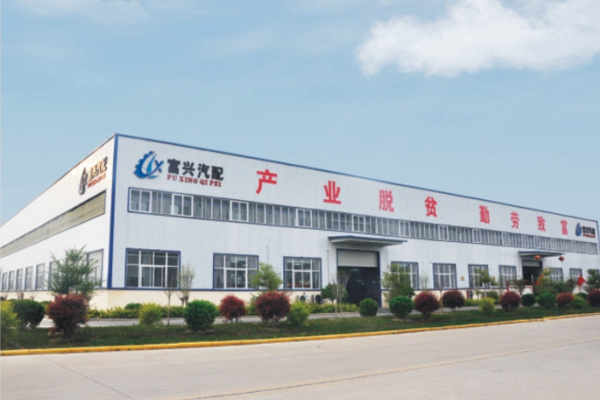-
 Marketing and serviceCompany telephone:
Marketing and serviceCompany telephone: -
PRODUCTMarketing and serviceCompany telephone:
-
QUALITY
 Marketing and serviceCompany telephone:
Marketing and serviceCompany telephone: -
 Marketing and serviceCompany telephone:
Marketing and serviceCompany telephone: -
CONTACT
 Marketing and serviceCompany telephone:
Marketing and serviceCompany telephone:
Ductile iron castings occupy a pivotal position in many industrial fields.
Release time:
2024-08-28
Wear resistance is also one of the key factors that make ductile iron castings popular.
Ductile iron castings, due to their unique physical and chemical properties, occupy a pivotal position in many industrial fields. One of its prominent features is high strength, which makes ductile iron castings perform well in applications that withstand heavy loads and high-pressure environments, far exceeding the performance range of general cast iron or steel. In structures that require mechanical conditions, such as the foundation of heavy machinery, the support structure of bridges, and key components of large buildings, ductile iron castings can provide solid and reliable support to ensure the stability and safety of the structure.
In addition, its wear resistance is also one of the key factors that make ductile iron castings widely popular. In environments with frequent friction and wear, such as mechanical transmission components, vehicle chassis systems, and lining of various piping systems, ductile iron castings, with their excellent wear resistance, effectively extend the service life of equipment, reduce maintenance costs, and improve overall operating efficiency. The graphite inside has undergone special treatment to form a spherical microstructure, which not only enhances the toughness of the material but also greatly improves its wear resistance.
Furthermore, the corrosion resistance of ductile iron castings is also remarkable. In humid and corrosive media, such as marine environments, chemical workshops, and other harsh working conditions, ordinary metal materials are often difficult to handle. However, ductile iron castings, with their excellent corrosion resistance, can maintain stable working conditions in these harsh environments, protect internal mechanical structures from corrosion damage, and ensure long-term stable operation of equipment.
In summary, ductile iron castings have been widely used in various fields such as transportation, construction engineering, mechanical manufacturing, energy and chemical engineering due to their excellent properties in high strength, wear resistance, and corrosion resistance. It is not only an indispensable material in the modern industrial system, but also an important force in promoting technological progress and industrial upgrading.
Engineering field: used for manufacturing various structural and load-bearing components, such as bridge supports, pipeline supports, etc.
Automotive manufacturing: used for manufacturing automotive components such as engine blocks, crankcases, transmission housings, etc. Automobiles are the application market for ductile iron castings, accounting for approximately 28.63% of the global market share.
In the field of architecture, it is used to manufacture building components such as drainage ditch covers, rainwater grates, etc.
Mechanical manufacturing: used for manufacturing mechanical components such as machine tool beds, bases, columns, etc.
Energy industry: It is also widely used in energy fields such as oil and natural gas.
keyword:
COOKIES
Our website uses cookies and similar technologies to personalize the advertising shown to you and to help you get the best experience on our website. For more information, see our Privacy & Cookie Policy
COOKIES
Our website uses cookies and similar technologies to personalize the advertising shown to you and to help you get the best experience on our website. For more information, see our Privacy & Cookie Policy
These cookies are necessary for basic functions such as payment. Standard cookies cannot be turned off and do not store any of your information.
These cookies collect information, such as how many people are using our site or which pages are popular, to help us improve the customer experience. Turning these cookies off will mean we can't collect information to improve your experience.
These cookies enable the website to provide enhanced functionality and personalization. They may be set by us or by third-party providers whose services we have added to our pages. If you do not allow these cookies, some or all of these services may not function properly.
These cookies help us understand what you are interested in so that we can show you relevant advertising on other websites. Turning these cookies off will mean we are unable to show you any personalized advertising.
CONTACT US
Landline:+860374-6621138
Phone:+8613938770929
Mailbox:fuxingzhuzao@126.com
Address: Xiyang Industrial Zone, Changge City, Henan Province
Copyright © 2024 Changge Fuxing Auto Parts Co., Ltd
SAF Coolest v1.3.1.2 设置面板 GAGSD-ZGYF-JFAVE-ZDW
无数据提示
Sorry,当前栏目正在更新中,敬请期待!
您可以查看其他栏目或返回 首页









